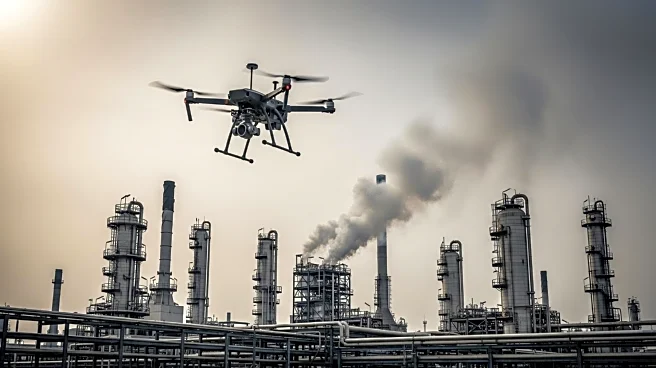What is the story about?
What's Happening?
The Security Service of Ukraine (SBU) has reportedly conducted a drone strike on Primorsk, Russia's largest oil-loading port on the Baltic Sea. This attack led to fires on vessels and a pumping station, causing a suspension of oil shipments. Primorsk is a crucial hub for Russia's 'shadow fleet' of tankers used to circumvent sanctions, handling approximately 60 million tons of oil annually. The strike could cost Russia up to $41 million daily. The attack is part of a larger wave of drone strikes across Russia, with over 200 drones reportedly downed overnight. The Russian Defense Ministry claimed that 221 Ukrainian drones were intercepted, marking one of the most significant strikes since the war began.
Why It's Important?
The drone strike on Primorsk represents a significant escalation in the ongoing conflict between Ukraine and Russia, targeting a vital component of Russia's oil export infrastructure. This disruption could have substantial economic implications for Russia, potentially affecting global oil markets. The attack underscores Ukraine's strategic shift to disrupt Russian operations and make the conflict more visible to the Russian populace. It also highlights the increasing use of drones in modern warfare, raising concerns about the security of critical infrastructure.
What's Next?
The suspension of operations at Primorsk may prompt Russia to enhance its air defense systems and reconsider its strategic approach to the conflict. Ukraine's continued use of drones could lead to further retaliatory measures from Russia, potentially escalating the conflict. The international community may respond with increased sanctions or diplomatic efforts to de-escalate tensions.
Beyond the Headlines
The use of drones in warfare raises ethical and legal questions about the targeting of civilian infrastructure and the potential for collateral damage. The attack on Primorsk could lead to long-term shifts in global oil supply chains and influence international relations, particularly between Russia and its trading partners.
















